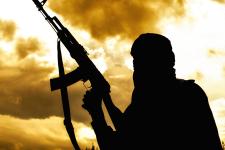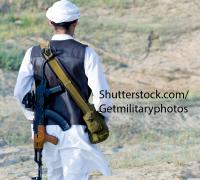Negotiating with jihadists? Assessing risks and opportunities

Wednesday 8 May 2024, 10.00-12.30
DIIS ∙ Danish Institute for International Studies
Gl. Kalkbrænderi Vej 51A
2100 Copenhagen
Civil wars with jihadist groups linked to al-Qaeda or the Islamic State (IS) appear resistant against peace negotiations. Existing research has raised various explanations for this pattern. The jihadists’ religious agenda, their repressive approach towards governance and their transnational organisational networks have been raised as obstacles.
On the other hand, governments have been criticised for refusing to acknowledge the political dimensions of the underlying conflicts and for hindering the work of third-party peacemaking actors. Notwithstanding these obstacles, calls for peace negotiations with jihadist groups continue to be raised, especially in the Sahel region, but also in other parts of sub-Saharan Africa, including Somalia and Mozambique.
But what are the perspectives for such negotiations to actually take place in the foreseeable future, and what steps would be necessary in this regard? Moreover, how could political settlements with jihadists look like, and what place could the state offer to them in a post-conflict order? This DIIS seminar invites experts on different jihadist conflicts to gather potential explanations to these questions.
Dr. Jerome Drevon is Senior Analyst in Jihad and Modern Conflict at the International Crisis Group. He is particularly interested in armed groups’ trajectories in armed conflicts, which he has researched extensively in both Egypt and Syria.
Dr. Harmonie Toros is Professor in Politics and International Relations at the University of Reading. As an expert in conflict analysis, she investigates nonviolent responses to terrorism and political violence and the potential for conflict transformation through negotiations.
Dr. Bakary Sambe is Executive Director for the Timbuktu Institute and an expert on preventing and countering violent extremism across the Sahel, both through the lens of academic and practical application.
Dr. Salvador Forquilha is a governance expert with over 14 years of experience in research, academia, and development practice in Mozambique. Currently he is a Senior Researcher and Director of the Institute for Social and Economic Studies (IESE), in Maputo.
Dr. Dino Krause is Postdoc Researcher at the Danish Institute for International Studies (DIIS). His current research focuses on de-escalation processes in armed conflicts with jihadist non-state actors.
Programme
10.00-10.10 Introduction, Dino Krause
10.10-10.35 Learning lessons from the Syrian context, Jerome Drevon
10.35-11.00 The Sahel, Bakary Sambe
11.00-11.10 Break
11.10-11.35 Mozambique, Salvador Forquilha
11.35-12.00 Somalia, Harmonie Toros
12.00-12.30 Q&A
Practical information
The seminar will be held in English. Participation is free of charge but registration is required via our registration form.
Sign up
DIIS Experts


